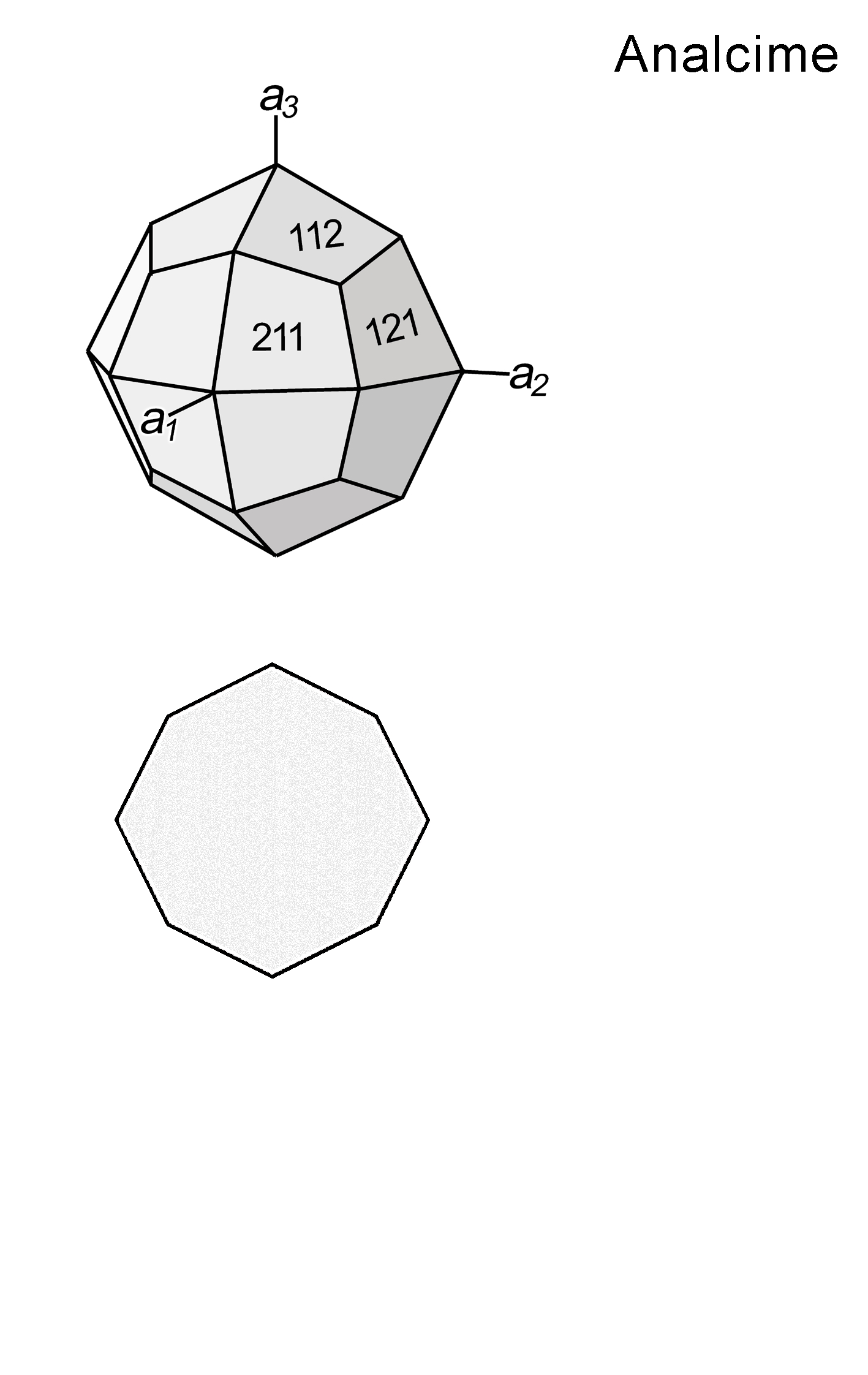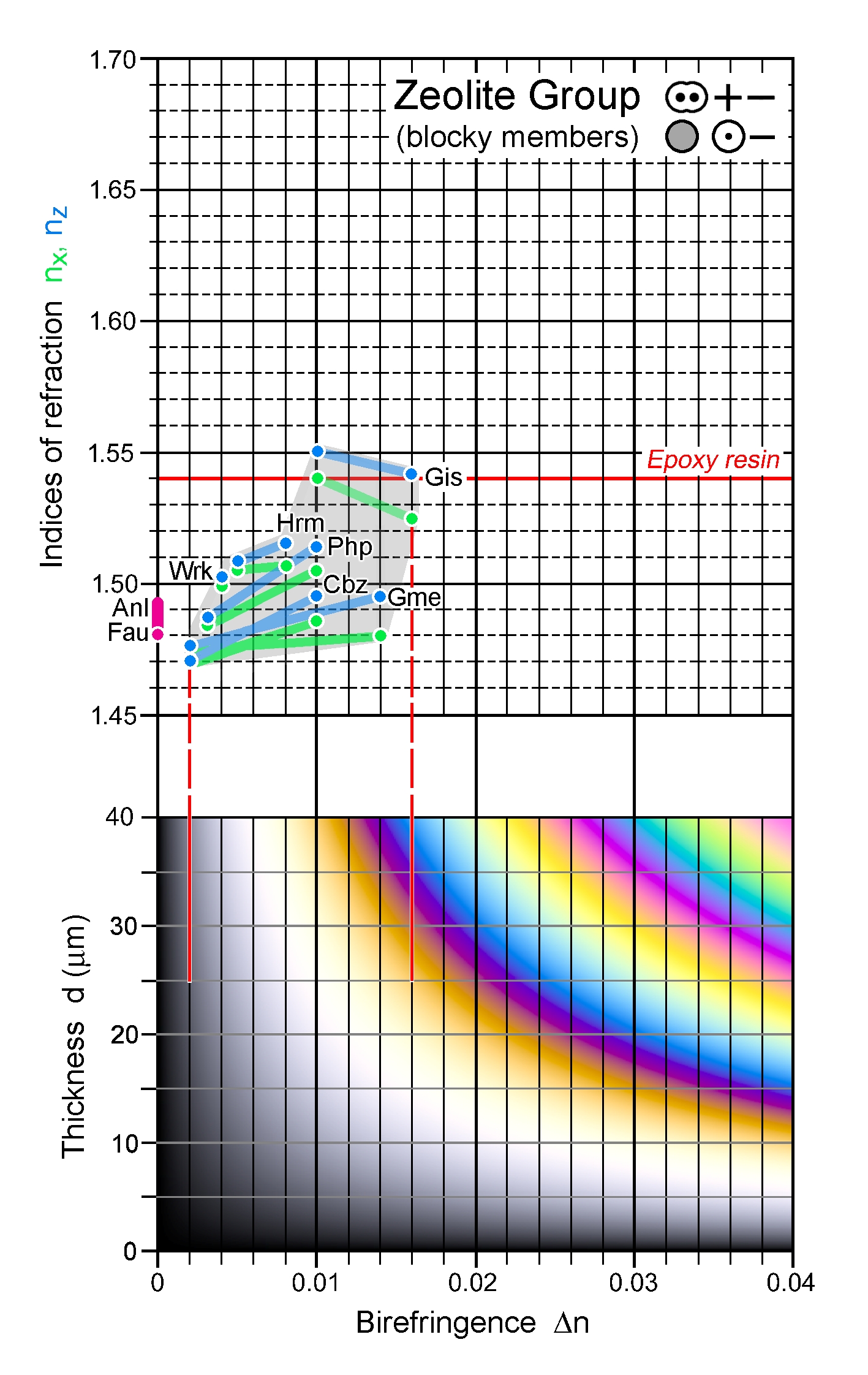|
| Formula | Na(AlSi2O6) ∙ H2O |
| | Optic class & sign | Isotropic |
| | Relief | Moderate, negative |
| | Refractive Index | 1.479 -1.493
|
|
| Ideal composition 1.488; n increases with increasing K content, decreases with increasing Si |
| | Birefringence | Zero to 0.002 |
| | Colour | Colourless |
| | Zoning | |
|
|
| Form | Habit | Equant, typically forming trapezohedra (icositetrahedra); also radiating or granular aggregates |
| | | Surface | Euhedral isolated crystals; anhedral in granular aggregates |
| | Cleavage | {001} poor |
| | Twinning | Birefringent crystals display cross-hatched twinning |
|
|
| Reaction textures | |
| | Alteration / decomposition | May alter to other zeolites or to nepheline + K-feldspar |
|
|
| Occurence | Ign | Silica-deficient alkaline plutonic and volcanic rocks |
| | | Met | Very-low grade pyroclastic rocks; upper stability of analcime + quartz occurs near the transition from diagenesis to metamorphism; thus, occurrence of analcime at higher temperature is restricted to silica-deficient rocks |
| | | Sed | Authigenic in sediments containing volcaniclastic material incl deep-marine sediments, altered tuff and argillaceous sediments in lacustrine, alkaline-saline environments, including very analcime-rich rocks (analcimolite) |
| | | Hyd | In veins, amygdales and other cavities of basalts; in cavities and veins of alkaline plutonic rocks; alteration product of feldspars and nepheline in igneous rocks; replacement of leucite |
| | | Other | |
|
|
| Distinctive properties | Isotropic, moderate-negative relief; habit if euhedral, characteristic occurrence |
| | Additional comments | Symmetries lower than cubic occur also.
n-Δn chart: Anl – analcime, Cbz – chabazite, Fau – faujasite, Gis - gismondine,
Gme – gmelinite, Hrm – harmotome, Php – phillipsite, Wrk - wairakite |
|
|

 Images
Images 


 Images
Images 
